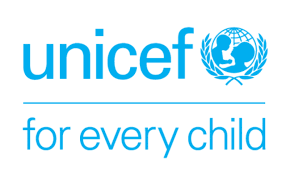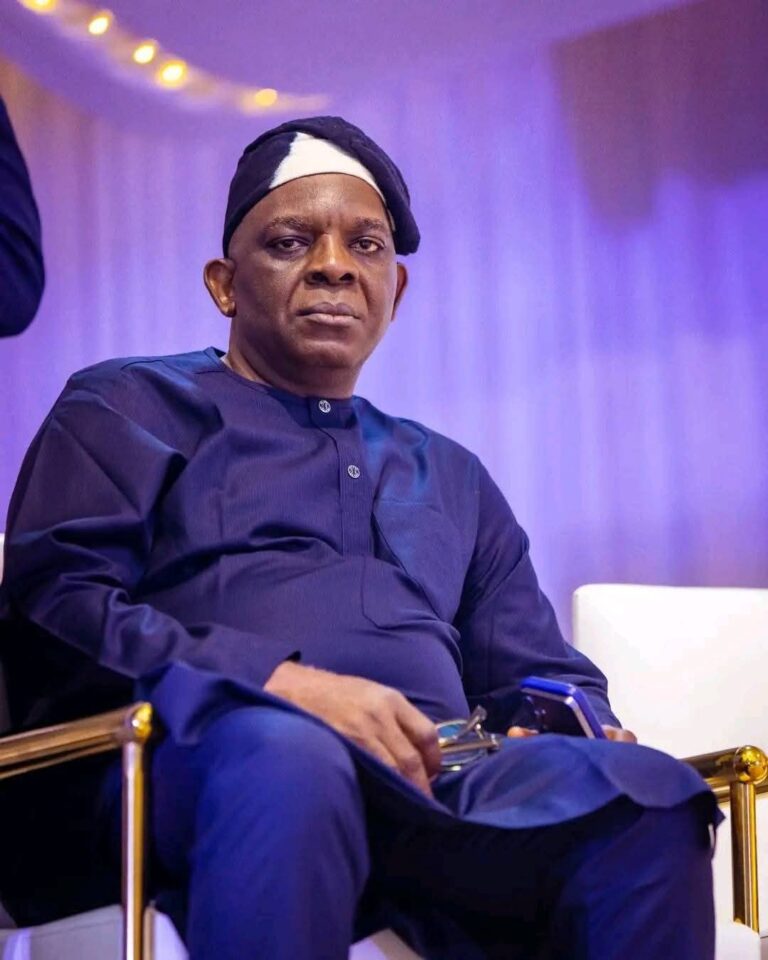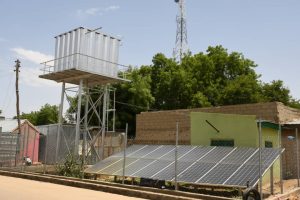News
26.5m Nigerian children experiencing high water vulnerability – UNICEF

The United Nations Children’s Fund, UNICEF says no fewer than 26.5 million Nigerian Children do not have enough water to meet their daily needs and are experiencing high or extremely high water vulnerability.
UNICEF in a statement to commemorate the 2021 World Water Day, said globally, more than 1.42 billion people – including 450 million children – are living in areas of high or extremely high water vulnerability.
According to a new analysis released by UNICEF, one in five children worldwide lack water to meet their everyday needs.
The analysis, is part of the Water Security For All Initiative, identifies areas where physical water scarcity risks overlap with poor water service levels.
The statement quotes Mr Peter Hawkins, UNICEF Representative in Nigeria, as saying that Communities living in these areas depend on surface water, unimproved sources of water, or water that can take more than 30 minutes to collect.
“The world’s water crisis is not coming – it is here, and children are its biggest victims.
“When wells dry up, children are the ones missing school to fetch water. When droughts diminish food supplies, children suffer from malnutrition and stunting.
“When floods hit, children fall ill from waterborne illnesses. And when water is not available in Nigerian communities, children cannot wash their hands to fight off diseases”.
The UNICEF data show that children in more than 80 countries live in areas with high or extremely high water vulnerability with Eastern and Southern Africa with the highest proportion.
It is followed by West and Central Africa (31 per cent), South Asia (25 per cent), and the Middle East (23 per cent).
Hawkins noted that in 2020, the Nigerian Government and UNICEF released a WASH NORM survey which showed some progress, through the Federal Ministry of Water Resources and its partners to strengthen the sector’s planning and monitoring.
He noted that much more work to be done in the country was to ensure that all Nigerians have access to adequate and quality water and hygiene services.
“Sustainable and equitable access to safe drinking water remains a challenge in Nigeria, with over 86 per cent of Nigerians lacking access to a safely managed drinking water source.
“The problem is compounded by poor drinking water quality and lack of equity in access. Although about 70 per cent of Nigerians are reported to have access to a basic water services, more than half of these water sources are contaminated”.
“And although 73 per cent of the country’s population have access to a water source, only nine litres of water on average is available to a Nigerian daily.
“At the current rate, the country will miss the SDG targets on people’s access to water, unless there is a strong commitment and appropriate action taken by all stakeholders.
“We have to act now both to address the water crisis in Nigeria to prevent it from getting worse and if we want to meet the SDGs.
“We can only achieve water security for every Nigerian, including the Nigerian child through innovation, investment and collaboration, and by ensuring services are sustainable and well-managed, We must act for the sake of our children and our planet.”
Our correspondent reports that March 22 annually is commemorated as World Water Day, to raise awareness on global water crisis.
The theme of World Water Day 2021 is ‘Valuing Water’.
The value of water is about much more than its price – water has enormous and complex value for our households, food, culture, health, education, economics and the integrity of our natural environment.
News
Pius Akutah’s Alleged Fraud at Nigerian Shippers Council Uncovered

Investigations by Nigerian Concord Newspaper reveal that the Executive Secretary of the Nigerian Shippers Council, Mr. Pius Akutah, has allegedly misappropriated public funds for a lavish lifestyle.
According to our findings, within months of assuming office, Akutah allegedly purchased a bulletproof SUV valued at approximately N850 million. In addition, he is reported to have acquired over twenty exotic SUVs for use as a convoy.
Akutah is also said to have acquired multiple high-value properties, including three in Abuja’s Maitama and Asokoro districts worth over N2 billion, and two in Lagos’ Banana Island valued at N1.8 billion. These acquisitions appear far beyond the scope of his official salary and allowances.
Further investigation suggests that Akutah may be using public funds to support political ambitions, including allegedly grooming militants across 23 local government areas in Benue State for a potential 2027 gubernatorial bid.
Staff of the Shippers Council reportedly claim that Akutah frequently accesses the council’s treasury without proper authorization. Some insiders have indicated that a petition will soon be filed with the EFCC, ICPC, and the Presidency to report his alleged misconduct.
*
News
Pius Akutah’s Alleged Fraud at Nigerian Shippers Council Uncovered

Investigations by Nigerian Concord Newspaper reveal that the Executive Secretary of the Nigerian Shippers Council, Mr. Pius Akutah, has allegedly misappropriated public funds for a lavish lifestyle.
According to our findings, within months of assuming office, Akutah allegedly purchased a bulletproof SUV valued at approximately N850 million. In addition, he is reported to have acquired over twenty exotic SUVs for use as a convoy.
Akutah is also said to have acquired multiple high-value properties, including three in Abuja’s Maitama and Asokoro districts worth over N2 billion, and two in Lagos’ Banana Island valued at N1.8 billion. These acquisitions appear far beyond the scope of his official salary and allowances.
Further investigation suggests that Akutah may be using public funds to support political ambitions, including allegedly grooming militants across 23 local government areas in Benue State for a potential 2027 gubernatorial bid.
Staff of the Shippers Council reportedly claim that Akutah frequently accesses the council’s treasury without proper authorization. Some insiders have indicated that a petition will soon be filed with the EFCC, ICPC, and the Presidency to report his alleged misconduct.
*
News
Special Birthday Wishes to Zege Mule U Tiv & Wazirin Adamawa

I am writing to felicitate with Your Excellency, Atku Abubakar, GCON, former Vice-President of Nigeria (Zege Mule u Tiv & Wazirin Adamawa)
on the occasion of your 79th birthday anniversary.
I join your teeming admirers globally in celebrating you on this special day, an adorable Statesman and my Boss.
I recall with nostalgia, how countless generations have benefited from your generosity, wealth of experience and benevolence including being my key benefactor even as a young lawyer for my professional success.
Your Excellency, may your special day be filled with grandeur befitting your illustrious career.
I wish you continued success, prosperity, and an unending stream of accolades.
It takes a remarkable kind of fortitude to remain active in public life well into one’s golden years. Your dedication and patriotism remain truly exceptional.
May you enjoy a day of reflection on your many years of fruitful service to humanity. It is my prayer that God Almighty grants you many more healthy, fruitful, and fulfilling years ahead, and continues to endow you with wisdom, strength, and the grace to keep contributing to our nation-building.
Happy Birthday, Your Excellency.
Michael Kaase Aondoakaa SAN.
Former Attorney General of the Federation and Minister of Justice
-

 Uncategorized5 years ago
Uncategorized5 years agoFG, states urged to harness flooding for ranching, others with technology – Agbaje
-

 Headlines10 years ago
Headlines10 years agoBreaking: EFCC seals Borno House of Assembly, as Hon members take to their heels
-

 News11 years ago
News11 years agoNigeria Security Operatives Stage Manhunt For Homosexual Perpetrator
-

 News9 years ago
News9 years agoHow 21-year-old Girl fled community over accusation of lesbianism
-

 News10 years ago
News10 years agoYobe Gov Moves Against Deputy
-

 Opinion7 years ago
Opinion7 years ago7 signs she has friend zoned you
-
Technology4 years ago
Online job placement company headhunts women
-

 Headlines10 years ago
Headlines10 years agoBorno Dep Gov Abducts Another Church Leader






